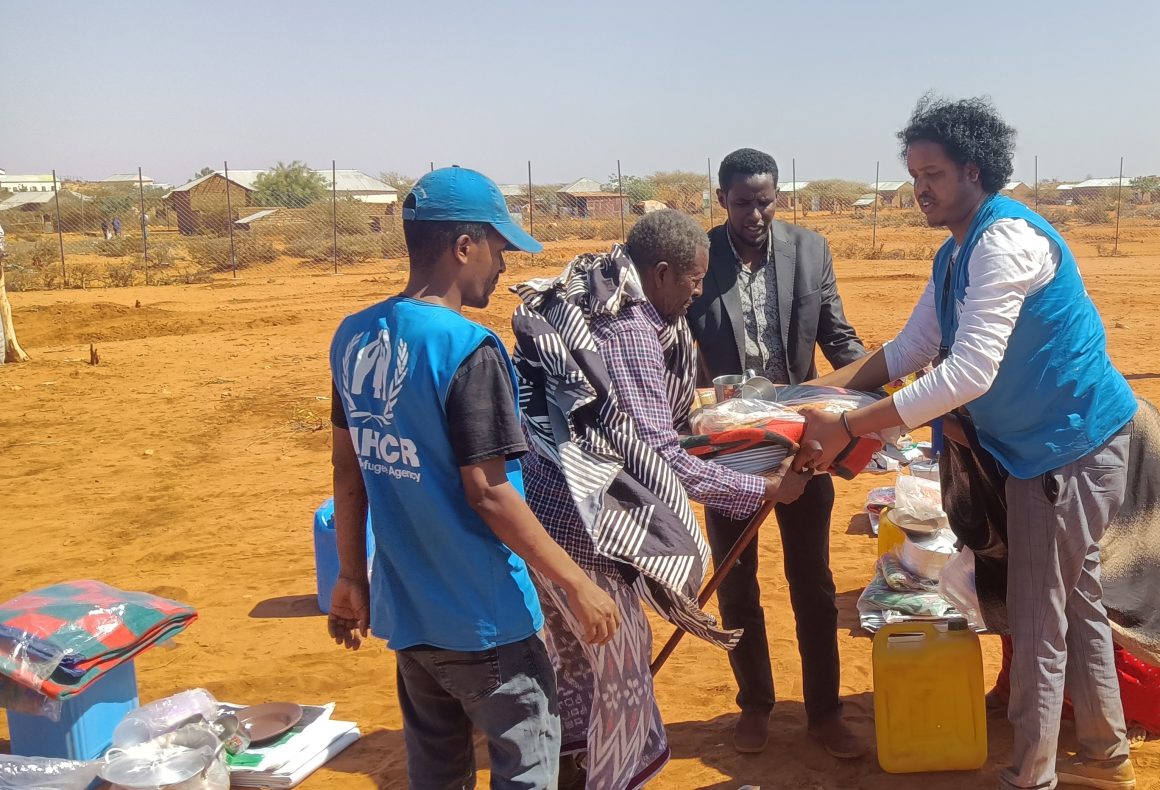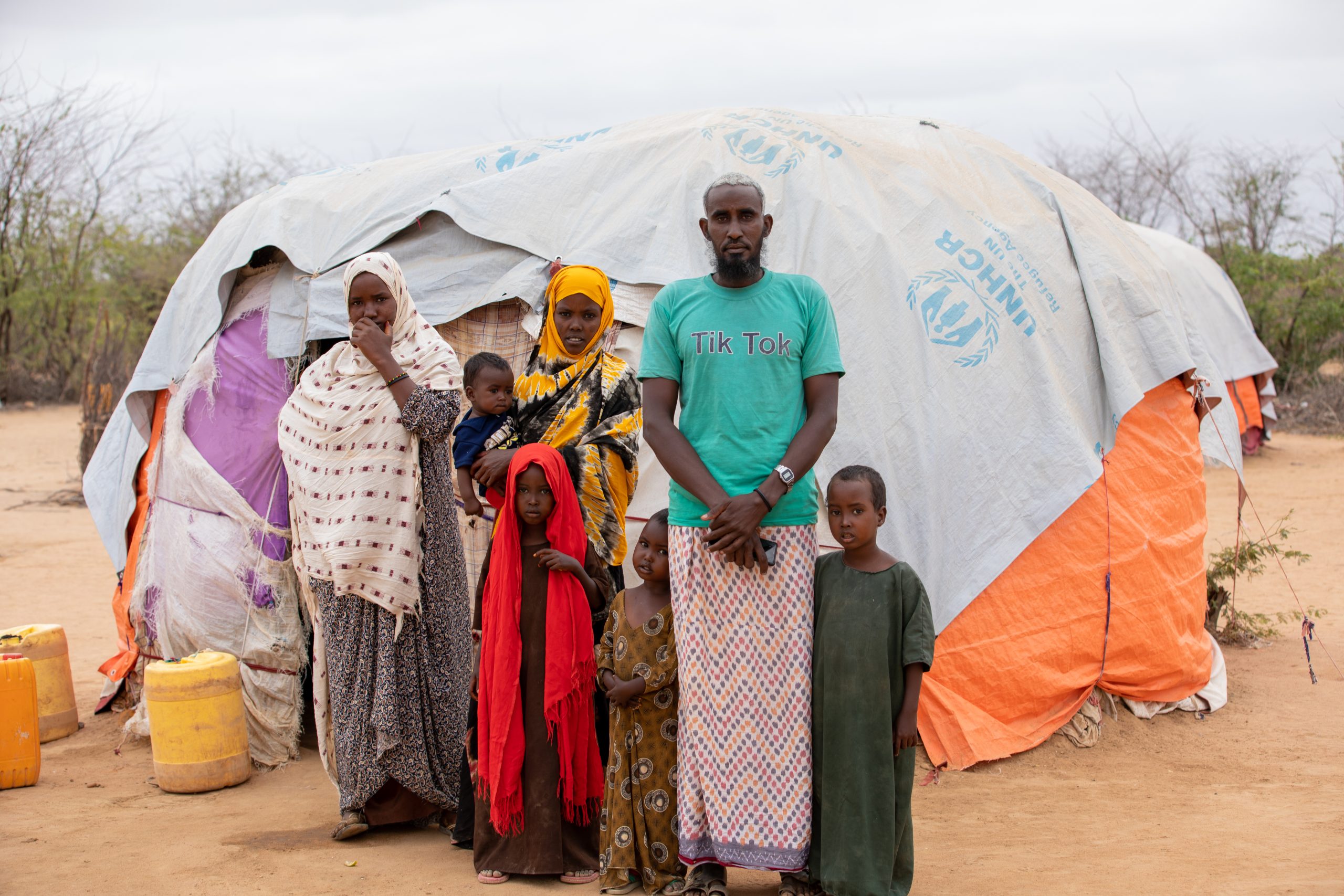Nearly 8.3 million people across Somalia are expected to face crisis or worse acute food insecurity outcomes between April and June 2023.
Any one of us could unexpectedly be forced to flee – no one is immune. The war in Ukraine, the recent earthquake in Türkiye and Syria and the ongoing drought and conflict in Somalia are sad reminders of this fact.
When caught in the midst of war, conflict, persecution and natural disasters most often the only choice is to run with the very little you can carry with you.
Regrettably, Somalis, in particular, have been among the victims of forced displacement for decades — fleeing to date.
For over 30 years, a crisis cycle of drought and conflict has fuelled Somalia leading to massive forced displacement, as countries like Kenya and Ethiopia have tirelessly welcomed their Somali brothers and sisters.
According to UNHCR, the UN Refugee Agency, 3.8 million Somalis are internally displaced while over 800,000 others are living as refugees in neighbouring countries and beyond.
Aid agencies are doing what they can to support Somalis displaced both within and outside the country, but the underlying causes of this displacement continue.
The slow progress in peace negotiations combined with the seemingly never-ending conflict and drought are damaging the people of the country.
For over 30 years, the only home many Somalis have know is a refugee camp; as now three or even four generations who have lived and spent their lives in refugee camps.
‘Stuck in limbo’
It is a major human tragedy for refugees to be stuck in an unresolvable limbo. Their basic rights and essential economic and social needs remain unmet after years of exile.
Movement restrictions, limited employment opportunities as well as a lack of access to education often put refugee lives on hold.
The short-term nature of planning and funding modalities for aid activities further add to the problem — leaving people forced to flee, unable to break out of their dependence on external assistance.
As humanitarian crises fade in the headlines, refugees like the Somalis often get forgotten.
On top of the protracted refugee situation, Somalia is now facing a devastating crisis of drought that could lead to a declaration of another famine given the last 30 years.
The African country has experienced acute droughts which culminated into famines and pre-famine conditions, in 1991/1992, 2011, 2016/2017 and now in 2021/23.
Five consecutive seasons of poor to no rainfall — that is three years with no rain — have left Somali babies, children, men and women in a life-threatening situation exacerbated by high food prices, late and poor humanitarian responses compounded by concurrent conflict, insecurity and disease outbreaks.
Nearly 8.3 million people across Somalia are expected to face crisis or worse acute food insecurity outcomes between April and June 2023.
International efforts
As the country grapples with this challenging environment, UNHCR together with other humanitarian aid agencies are doing what they can to reach the most vulnerable.
The international community is also trying to garner further support to countries like Somalia, as was showcased at the high-level Fifth United Nations Conference on the Least Developed Countries (LDC5), held in Doha earlier in March.
However, more investments are needed in durable solutions and resilience programmes to improve the capacity of communities to cope with current and future climate-related and human-induced shocks.
Unfortunately, however, Somalia has struggled to attract sustained global attention. Programmes to deliver assistance and protection are often under-funded. For example, in 2022 humanitarian partners in Somalia received less than 60% of the resources required to respond to people’s needs.

On the other hand, while the country will remain dependent for some time on foreign humanitarian aid to address the various chronic problems, the Federal Government of Somalia has also set the creation of investment, education and employment opportunities as well as political and security stability for sustainable return and reintegration of refugees and internally displaced persons (IDPs) as key priorities.
In line with our mandate to protect refugees and seek durable solutions to their plight, UNHCR is working to ensure that protracted refugee situations like the Somali situation are not forgotten, and that they are responded to in a manner that enables refugees to enjoy their rights that would facilitate their self-reliance pending solutions.
Qatar has been generous in supporting the displacement situation in the Horn of Africa and I would like to urge for the generosity to continue until we can collectively find solutions.
A collective responsibility
Every person has a right to seek safety and I believe it is our collective responsibility to ensure that people have access to safety and their basic needs are met.
However, when children, men and women are left in desolate refugee camps for decades surviving on international assistance; it indicates that we collectively still have a lot to do to bring durability for solutions.
As UNHCR’s Special Envoy for the Horn of Africa, I am obligated to support and advocate for efforts to save the lives of the malnourished babies, for young people to be able to go to school and realize their full potential, and for refugee mothers not to have to worry about their children or their children’s children to have to live in a refugee camp forever.
I applaud the strength and resilience of those forced to flee their homes as well as the true kindness of communities who received them.
Solidarity with the Somali displaced people and the countries who have welcomed them is needed now more than ever.
Ambassador Mohamed Abdi Affey is the UNHCR Special Envoy for the Horn of Africa.







